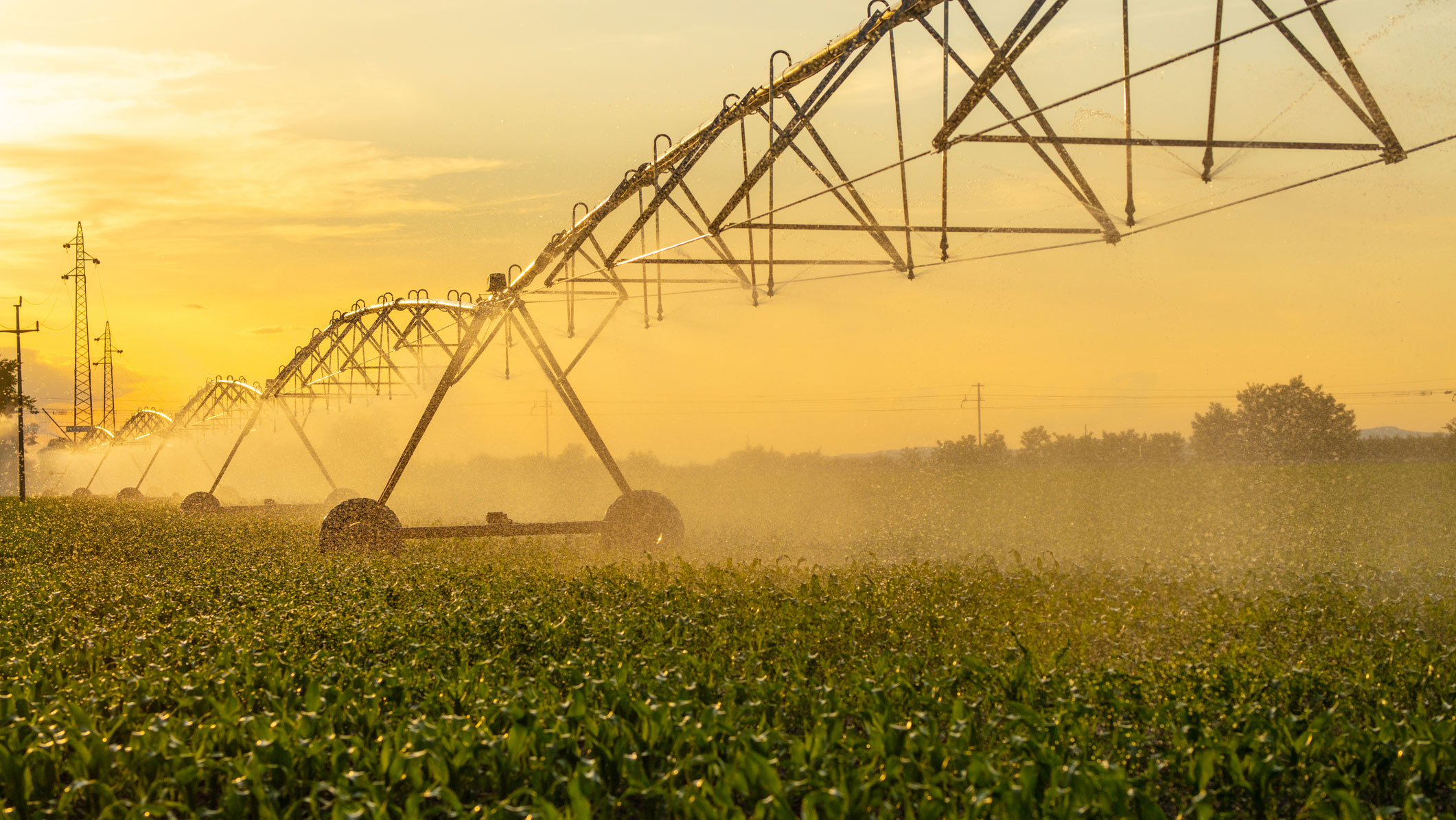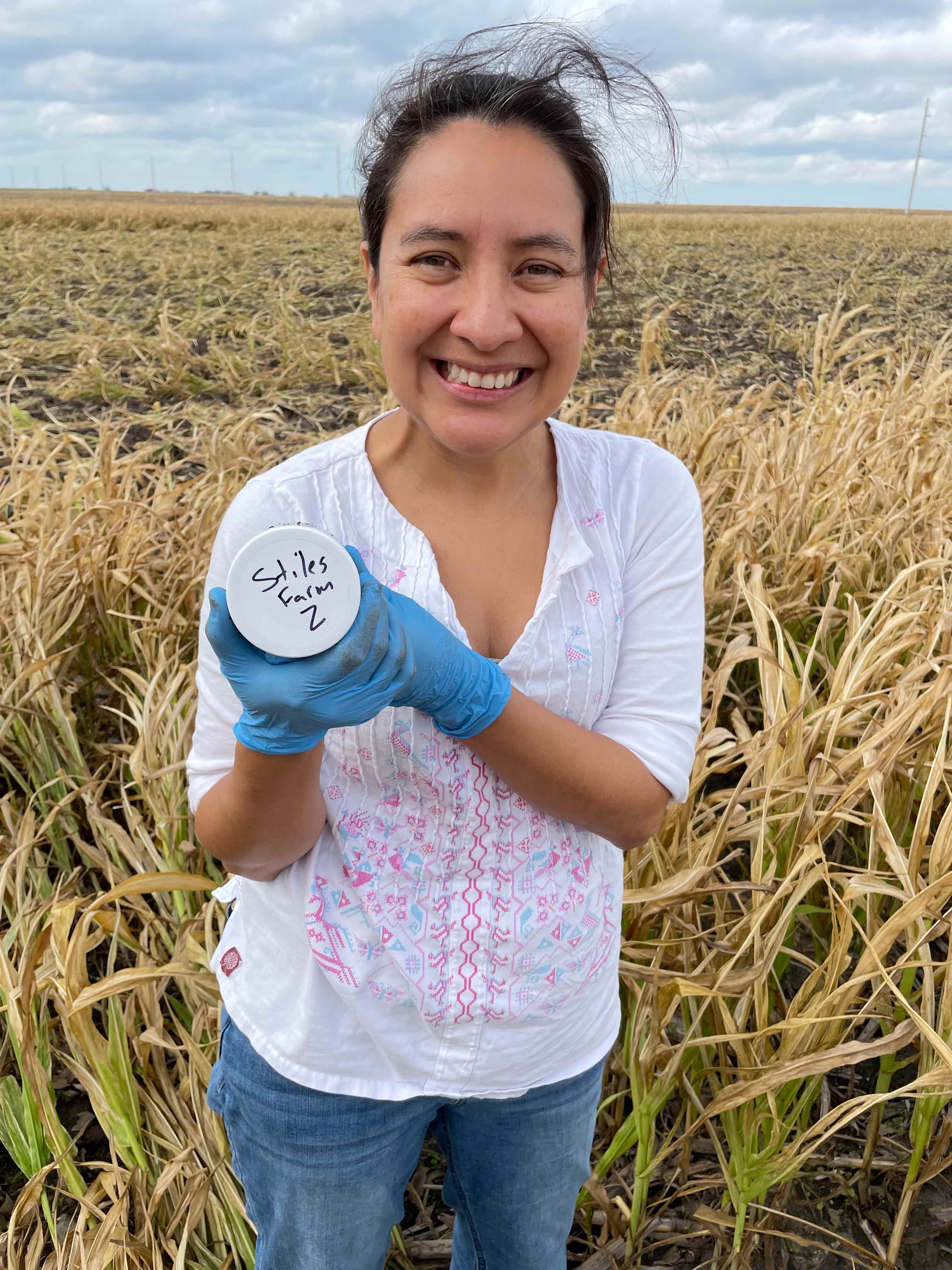
Antibiotic-resistant (AR) bacteria in agricultural soils may be connected to water used to irrigate crop fields. Dr. Itza Mendoza-Sanchez, assistant professor in the Zachry Department of Civil & Environmental Engineering, intends to study connections between antibiotic-contaminated irrigation water and AR bacteria in soils with support from the National Science Foundation Faculty Early Career Development Award.
Some fields are irrigated with treated wastewater containing antibiotic pollutants, which could infiltrate the soil and interact with the ecosystem. Mendoza-Sanchez's research will seek to understand how well soils can filter out antibiotics and how they affect the soil’s microbial communities.
“I’m using the antibiotics as a chemical and the resistance in the microbial community as a signal to understand how much we are affecting the soil environment,” Mendoza-Sanchez said. “We have so many chemicals as residuals in our water, either from treatment plants or surface water, that we are affecting the capacity of soil to conduct natural filtering.”
As part of the five-year, $548,000 award, Mendoza-Sanchez is planning to use the three elements of field investigations, experiments, and process-based modeling to study these impacts on soil antibiotic resistance. She is targeting potential sites in El Paso, TX, that reuse water in this way.
“The final goal is to use those three elements to understand if we're reaching the capacity of the soil for assimilating chemicals,” Mendoza-Sanchez said. “If we learn how those chemicals are affecting the microbial community, we can also use the same tools to understand if we're reaching the capacity of the soil for natural filtering with other chemicals.”

The award also allows for plans to engage and train student researchers from multiple fields, such as biology, public health and chemistry, by developing a chatbot for STEM students. For the proposed STEaM-Bot (Science, Technology, Engineering, and Mathematics chatbot), student researchers will construct questions and explanations based on the lab’s research.
“When they are participating in the research, they develop dialogs as a chatbot, so they have to develop a way of learning,” Mendoza-Sanchez said. “The other part is that with the chatbot, we can advertise the students that are doing the research.”
Mendoza-Sanchez hopes the STEaM-Bot can grow into an educational outreach tool for K-12 students interested in STEM research as well.
“When you see that other students are participating from different fields and from different levels, you can see yourself as a researcher and can see yourself participating in the research,” Mendoza-Sanchez said.
The potential impacts of this research can span agriculture, public health and soil science. The soil filtration model can inform future studies of multiple chemicals and contaminants, such as poly-fluoroalkyl substances or pesticides. Understanding the interactions between residual antibiotics and the soil microbiome can help studies of antibiotic-resistant bacteria. The STEaM-Bot can offer a new way for her students to learn during research. It can not only engage student researchers in Mendoza-Sanchez’s lab but also serve as a vehicle for those students to reach younger students interested in STEM.
Funding for this research is administered by the Texas A&M Engineering Experiment Station (TEES), the official research agency for Texas A&M Engineering.